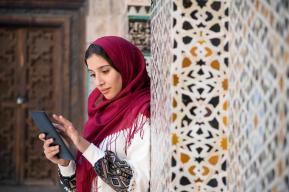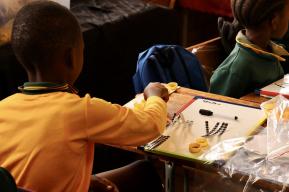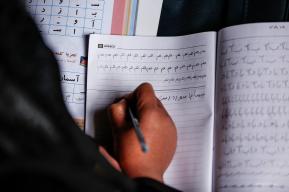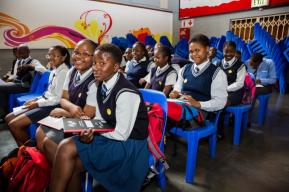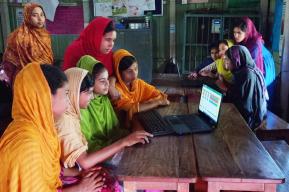News
Project promoting African indigenous languages from South Africa is awarded UNESCO International Literacy Prize
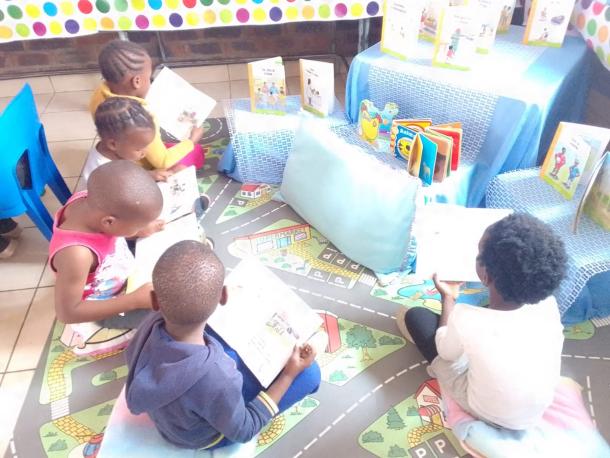
Molteno Institute for Language and Literacy is awarded the UNESCO Confucius Prize for Literacy, for its programme ‘School Readiness through Community Participation’.
The Molteno Institute for Language and Literacy is an independent national literacy non-profit organisation, established in 1974 in South Africa. It aims to improve the reading, writing, speaking as well as listening skills in disadvantaged communities in the African Continent, mainly promoting African indigenous languages, and relying on intensive and scientifically acknowledged research to foster relevant linguistic and culturally appropriate reading resources for children.
In 2018, the Institute started the programme ‘Readiness through Community Participation’ with the aim of equipping children, the school and the community to prepare Grade R (Reception Year) learners for formal schooling. Moreover, the programme involves local communities and parents in creating appropriate play and learning environments for children and link them to local schools, leading towards a strong sense of community commitment. The programme includes ten modules and the use of tablets for teachers. Moreover, they developed resources and literacy materials such as banners, posters, functional labels for the children and the communities. From 2018 to 2021, around 11 734 learners completed the programme, with 76 per cent being girls and women.
The programme was inspired by the evidence coming from the 2016 PIRLS Study and the two evaluations conducted in 2021 by NECT (National Education Collaboration Trust) to assess the state of reading in schools. It was found that around 78 per cent of grade 4 students could not read for meaning and the causes were attributed to the poor foundation in the Foundation Phase of the education system, from Grade R to 3. During the implementation of the first programme for Grade 1 to 3 students in 2015 to 2017, children proved not to be ready for grade 1. Hence, the decision to act on Grade R students.
The programme proved to be able to go beyond the traditional learning spaces and contribute to transform them by creating, through community and parental participation, natural playgrounds for learners to experience Learning through Play modality, in better resourced urban and peri-urban settings. The natural playgrounds are designed to accommodate both able and disabled learners and cover different dimensions of early grade learning such as emotional, physical, social, and intellectual development.
With the outbreak of the pandemic, the learning activities continued digitally and new loom videos for teachers, and manuals and booklets for learner activities were further developed. Additionally, during the schools’ closures, the programme was able to substitute the National School Nutritional Programme by delivering food parcels to learners from destitute families.
The programme was able to create an innovative inclusive learning space, tailored to the needs of the learners, contributing to the development of multiple literacy learning spaces. Mr. Masennya Dikotla, CEO of the Institute, said “multiple literacy learning spaces promote tolerance and patience amongst learners in that they are taught to know and accept themselves, but also to know and accept others as they are and not as they wish them to be”.
In the future, the Institute hopes to scale up the programme reaching more schools in South Africa and also extending to other African countries. The vision of the programme for the future is to ‘inspire communities across the length and breadth of South Africa (and by extension Southern Africa) to roll up their sleeves for the benefit of their children’. However, to reach this objective, the programme needs additional support from national and international funders, governments, local communities and corporates.
For the International Literacy Day, Mr. Dikotla sends an encouraging message, “while we are well within our rights to expect our governments to support the education of our children we all have a role to play and must play it in our different capacities to close the gaps. Afterall we are the teachers of our own children before governments can take over”.


